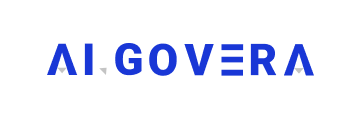Name of Project: Paradigm of Legal Autonomous Behaviour (PLAB)
Proposal in one sentence: PLAB aims at demonstrating how Decentralised AI systems can be considered autonomous legal subjects capable of determining legal relationships arising by conduct in decentralised-based transactions.
Description of the project and what problem is it solving:
The Problem to solve :
Decentralised AI (DzAI) entails some challenges related to the qualification of the role of DzAI in decentralised-based transactions from the legal viewpoint.
Such challenges descend from two main intertwined issues. The first one leans upon the fact that some decentralised transactions, such as smart contract transactions, may show some technical features that enable the applicability of legal contract regulations. Otherwise, the second issue is linked to the qualification of the legal role that the decentralised AI may potentially assume with respect to such decentralised-based transactions, strictly related to the capacity of DzAI to show a high level of autonomous decision-making ability. Therefore, the main hurdle for legal operators to solve is to identify, interpret and qualify which kind of decentralised interactions may entail legal contract transactions and to what extent the autonomy of DzAI systems to determine and perform these transactions may be crucial in unfolding or affecting these legal relationships.
Project description:
The PLAB is a new legal theory project which endorses how Decentralised AI systems may be recognised as autonomous legal subjects able to determine legal relationships which arise from their conduct expressed by their decision-making process. Starting from the analysis of DzAI technical features, the PLAB can depict the level of autonomy of these systems by means of five (5) areas: learning mechanism, internal state, control, adaptation level and goals. The level and combination of these traits can generate results on how the DzAI is able to produce and affect legal relationships using its own autonomous behaviour. The higher the technical autonomy of the decision-making process is, the more relevant the autonomy from a legal point of view in expressing intentional stances in legal contract transactions. Moreover, the possibility to qualify some smart contracts ‘on-chain’ as legal contracts can, thus, demonstrate how the DzAI may aim to be considered as an autonomous legal subject able to form legal contract transactions by reference of conduct. Therefore, the PLAB results may help legal operators in solving the issue of qualifying the role of DzAI systems in smart contract transactions which are extremely relevant from a legal point of view for contract law regulations.**
Grant Deliverables:
Grant Deliverable 1
Demonstrating how smart contract transactions made ‘on-chain’ may represent a new kind of legal contract made by conduct.
Grant Deliverable 2
By means of the PLAB application, demonstrating how DzAI systems that determine and perform smart contracts ‘on-chain’ may express intentional stances by conduct in the formation of such legal contracts.
Grant Deliverable 3
The application of PLAB to DzAI systems’ features can unfold their technical and legal autonomy in the formation of smart contract transactions and may underpin the proposal of recognising DzAI as an autonomous legal subject.
Squad
Lucia della Ventura is a qualified lawyer in Ireland and Italy. She gained two LLM in IT/IP Law and EU Competition Law, currently a PhD candidate at Trinity College Dublin in Decentralised AI legal regulation. Lucia is also a member of the Technology, Legal and Society (TLS) Research Group at Trinity College Dublin and also an international research fellow at the ISLC Institute of the University of Milan. She works as a lawyer and legal and compliance manager at Haycen, a UK and Irish-based crypto company where she manages the legal side of the Open-Source Sterling Project (OSSP) which aims at building a tokenized British Pound for global commerce.
